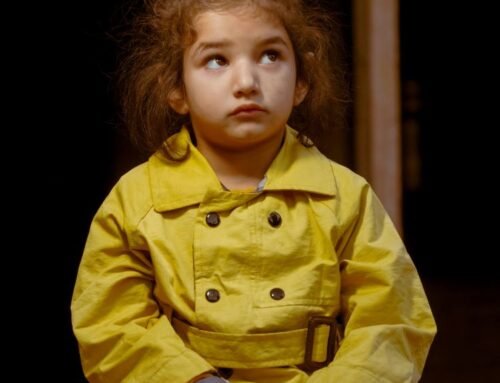 There are many factors that can play into addiction as an adult. Sometimes, it’s your environment. Other times it’s your current life situation. But there are also often underlying links that can stem from childhood trauma.
There are many factors that can play into addiction as an adult. Sometimes, it’s your environment. Other times it’s your current life situation. But there are also often underlying links that can stem from childhood trauma.
Trauma and addiction are more closely connected than people realize. Now that more research is being done to understand addiction and how susceptible certain groups are, this connection is becoming a more prominent point to consider.
Because a child’s experiences in life help to shape who they are and who they become, it makes sense that unresolved childhood trauma can lead to problematic addictions.
What should you know about this connection, and what can you do if you or someone you know needs help?
How Childhood Trauma Impacts Adults
 First, it’s important to think about how traumatic experiences impact children and adults differently. As a child, something might seem much worse to you than it would as an adult. Everything is bigger, louder, and scarier. That’s especially true if that child doesn’t have someone they can talk to about what they’re experiencing.
First, it’s important to think about how traumatic experiences impact children and adults differently. As a child, something might seem much worse to you than it would as an adult. Everything is bigger, louder, and scarier. That’s especially true if that child doesn’t have someone they can talk to about what they’re experiencing.
That doesn’t mean emotions are invalid as a child. They are incredibly real and need to be worked through, even if the situation might seem small to an adult. The problem? Children can have a hard time processing them, especially without an adult to help and guide them through it.
Many times, that childhood trauma goes unresolved and lingers in their minds through the years.
Traumatic experiences witnessed as a child, including domestic violence, drinking, or losing a loved one, can make an individual more vulnerable to addiction later in life. They often turn to a substance to cope, because they haven’t been able to fully work out the issues they’ve been through.
Children don’t often have a frame of reference for handling trauma. And, if they’re in a household where abuse is a problem, they may have nowhere to turn. So, they turn to coping mechanisms as a child that can later become adult addictions.
How to Deal With Childhood Trauma Later in Life

If you don’t believe that there is a strong connection between trauma and addiction, consider this; about two-thirds of all individuals struggling with a substance use disorder have gone through some type of trauma in their lives. In many cases, it was physical or sexual trauma.
Why is that knowledge important?
Not only can it help therapists, counselors, and addiction specialists, but it can help you or someone you know who might have gone through a traumatic childhood. One of the first steps to treating addiction is to find the underlying cause(s) or the “root” of the problem. Because you might be more susceptible to addiction thanks to trauma, it can be a good place to start when you finally decide to get the help you need–and deserve.
 When you can uncover that trauma, you can start working through it before actually focusing on the addiction itself. Children cope in their own ways. But, as stated above, adults that have dealt with trauma can easily cope with bad habits–like substance abuse. So, it helps to start by working on the effects of the trauma before focusing on the addiction.
When you can uncover that trauma, you can start working through it before actually focusing on the addiction itself. Children cope in their own ways. But, as stated above, adults that have dealt with trauma can easily cope with bad habits–like substance abuse. So, it helps to start by working on the effects of the trauma before focusing on the addiction.
If you or someone you care about is struggling with addiction, it’s never too early (or too late) to find help. Maybe you’ve been keeping the memories of childhood trauma in for too long, or maybe you’ve never been able to bring them to the surface. Whatever the case, help is available. Feel free to contact me to schedule a complimentary consultation call.





